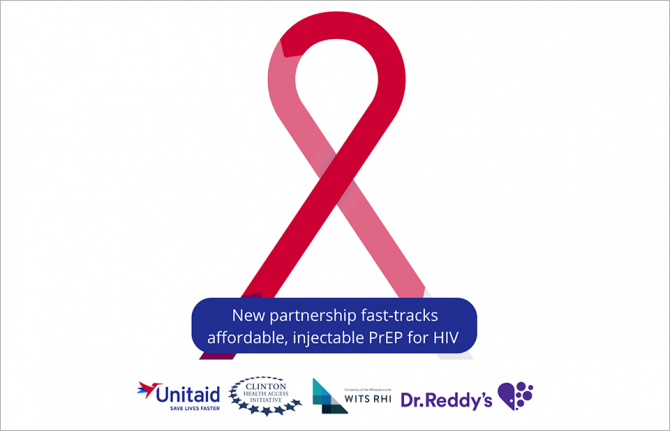

Press Release
UNAIDS welcomes the announcement of new deals to make new HIV prevention medicines available and affordable for people in need
24 September 2025 24 September 2025The deals represent a massive price reduction from USD 28 000 to just USD 40 per person per year for medicine that is almost 100% effective in preventing HIV.
NEW YORK/GENEVA, 24 September 2025—UNAIDS strongly welcomes the announcement of two new agreements to advance progress in stopping new HIV infections. UNAIDS estimates show that 1.3 million people were infected with HIV in 2024 far higher than the target of 370,000 by 2025. Lenacapavir, produced by US company Gilead, is a revolutionary new medicine that prevents HIV infection with injections just twice a year.
The current price of lenacapavir for HIV treatment in the US is USD 28 000 per person per year. These new agreements, crafted with generic producers, would bring the price for HIV prevention down to just USD 40 per person per year.
“This is a watershed moment. A price of USD 40 per person per year is a leap forward that will help to unlock the revolutionary potential of long-acting HIV medicines,” said Winnie Byanyima, Executive Director of UNAIDS.
The agreements were announced today during the United Nations General Assembly in New York. UNITAID, the Clinton Health Access Initiative (CHAI), and Wits RHI are providing financial, technical, and regulatory support to Indian generic manufacturer Dr Reddy’s Laboratories, enabling the annual cost of injections to come to just USD 40. An initial oral dose required alongside the first injections will cost no more than USD 17 under the agreement.
The Gates Foundation will support Indian generic manufacturer Hetero Drugs with upfront funding and volume guarantees to ensure a cost of around USD 40 per patient per year following the short pre-treatment oral regimen.
The new long-acting medicines will make preventing HIV easier and more accessible for people most in need. Lenacapavir will add to the suite of HIV prevention options currently available including condoms, vaginal rings and daily prevention pills.
PURPOSE 2 Trial results published in the New England Journal of Medicine found that lenacapavir was between 96% and100% effective in preventing new HIV infections.
Research published in The Lancet HIV earlier this year, experts estimated that, if purchased at scale, the cost of generic lenacapavir could range from USD 35 to USD 46 per person-year. Falling to USD 25 with high demand, making the medicine affordable even for low-income countries.
UNAIDS has been advocating for the long-acting medicines to be affordable and available for people in most need since the studies were concluded. UNAIDS estimates that if 20 million people in highest need, including men who have sex with men, sex workers, people who inject drugs and young women and adolescent girls in sub-Saharan Africa have access, this could dramatically reduce new infections and significantly advance progress in ending AIDS by 2030.
“UNITAID, Gates, CHAI, Witts RHI, Reddy, and Hetero have shown today what is possible when companies prioritize equitable access to lifesaving medicines. Gilead now needs to match that ambition by reducing its price for lenacapavir, being completely transparent on cost and pricing, expanding its generics license to include all low and middle-income countries, and allowing more people in developing countries to rapidly access these life-saving medicines,” said Ms Byanyima.
Note: The agreement falls under Gilead’s voluntary license enabling six generic manufacturers to produce lenacapavir for use in 120 primarily low and lower-middle-income countries.
UNAIDS
The Joint United Nations Programme on HIV/AIDS (UNAIDS) leads and inspires the world to achieve its shared vision of zero new HIV infections, zero discrimination and zero AIDS-related deaths. UNAIDS unites the efforts of 11 UN organizations—UNHCR, UNICEF, WFP, UNDP, UNFPA, UNODC, UN Women, ILO, UNESCO, WHO and the World Bank—and works closely with global and national partners towards ending the AIDS epidemic by 2030 as part of the Sustainable Development Goals. Learn more at unaids.org and connect with us on Facebook, Twitter, Instagram and YouTube.
